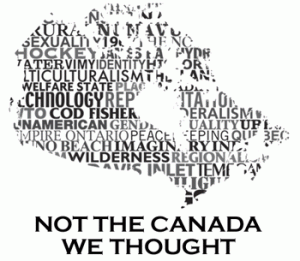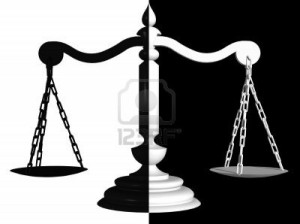3 ] Frye writes:
A much more complicated cultural tension [more than two languages] arises from the impact of the sophisticated on the primitive, and vice a versa. The most dramatic example, and one I have given elsewhere, is that of Duncan Campbell Scott, working in the department of Indian Affairs in Ottawa. He writes of a starving squaw baiting a fish-hook with her own flesh, and he writes of the music of Dubussy and the poetry of Henry Vaughan. In English literature we have to go back to Anglo-Saxon times to encounter so incongruous a collision of cultures (Bush Garden 221).
It is interesting, and telling of literary criticism at the time, that while Frye lights on this duality in Scott’s work, or tension between “primitive and civilized” representations; however, the fact that Scott wrote poetry romanticizing the “vanishing Indians” and wrote policies aimed at the destruction of Indigenous culture and Indigenous people – as a distinct people, is never brought to light. In 1924, in his role as the most powerful bureaucrat in the department of Indian Affairs, Scott wrote:
The policy of the Dominion has always been to protect Indians, to guard their identity as a race and at the same time to apply methods, which will destroy that identity and lead eventually to their disappearance as a separate division of the population (In Chater, 23).
For this blog assignment, I would like you to explain why it is that Scott’s highly active role in the purposeful destruction of Indigenous people’s cultures is not relevant for Frye in his observations above? You will find your answers in Frye’s discussion on the problem of ‘historical bias’ (216) and in his theory of the forms of literature as closed systems (234 –5).
In Northrop Frye’s book “The Bush Garden; Essays on the Canadian Imagination” he explains Canadian literature to be extremely historical and factual rather than creative and imaginative. He states that “the form of [the Canadian writer’s] expression of it can take shape only from what he has read, not from what he has experienced” (Frye 234) and describes Canadian writers abilities are constricted to the argumentative use of language and textbooks. Frye understands Canadian literature to be written out of history books and never from personal experience or pure imagination. I think this is why Duncan Campbell Scott‘s highly active role in the purposeful destruction of Indigenous people’s cultures is not relevant for Frye in his observations.

Scott’s work aims to fight for the Indigenous people referring to historical facts but yet it is limited to those historical facts themselves. Scott was limited to only seeing the left and right, the primitive and civilized, the educated and the savage. “Right was white, wrong black and, nothing else counted or existed” (Frye 228). Rather than breaking free from the box of historical bias, Scott focused purely on the black and white which limited himself to writing strictly about traditional, historical and well-known facts. This type of thinking and writing has no positive effects on intellectual life and according to Frye, seeing things as just “two solitudes” is highly problematic as “nothing original can grow” (228). Being that Scotts work is entirely based on reiterating Canadian Aboriginal history rather than exploring the Aboriginal culture, his role in the destruction of the Indigenous culture is completely irrelevant to Frye. Scotts work negates the entire foundation of literature that Frye recognizes as he sees things as black and white rather than shades of gray.

However, I am not quite convinced this is the only reason why Scotts role is completely irrelevant to Frye. Maybe I am just playing the devils advocate here or maybe I am seeing two answers to the same question but I feel like Frye may have dismissed Scott because Frye doesn’t consider Indigenous people to be of any intellectual value. Frye spends a lot of time highlighting the division of two languages and two kinds of literature, emphasizing his elimination of any other source of cultural value. Specifically, the fact that he doesn’t even recognize any human being ever being present in North America before the two Canadian cultures arrived supports my claim that he doesn’t consider Indigenous people to be valuable beings at all. From the perspective of Frye, he doesn’t recognize Indigenous people to have a voice in the Canadian literary canon or have an impact on shaping Canada as a country.
Thanks for reading! Let me know what you guys think 🙂
Works Cited
Frye, Northrop. The Bush Garden; Essays on the Canadian Imagination. 2011 Toronto: Anansi. 228-234. Print.